by Alex Shtaerman
As a co-founder of one of the most notorious street organizations in American history, T Rodgers carries the type of street cred reserved only for a select group of individuals who through their actions, teachings and notoriety have made definitive and lasting contributions to the very nature and character of American street culture. After relocating to California in 1969, a young T began assembling what would become one of the most notorious Blood sets in Los Angeles. “By the time I was sixteen years old I had 500 members, five California parks, five schools, all under my control”, recalls the former gang leader.
But the story of T Rodgers is far more captivating and intriguing than some of the stereotypical paradigms of gang culture that have come to be popularized and sometimes celebrated in the context of mainstream Americana. T Rodgers, more than anything, is a unique product of his era, and as he readily points out, his ultimate outlook was a consequence of a dual perspective that encompassed both Dr. King’s message of non-violence as well as Malcolm X’s more assertive stance of “by any means necessary”. Consequently T would build his organization from the ground up by instilling core values, a code of moral conduct as well as an emphasis on discipline through the practice of martial arts. Sadly, he also acknowledges that the decisive ideology he impressed upon his organization during his tenure has eroded and declined with the passing of time.
Having long ago transcended the day to day activities of gang life, T Rodgers has authored the book The 50 Most Asked Questions About Gangs, consulted for and appeared in a variety of Hollywood films and trained law enforcement as well as corrections officials. The broad scope of his wisdom and insights resonates across an expansive range of subject matter, shattering traditionally-perceived barriers and empowering anyone who is willing to listen and think critically. Thoroughly engaging and uncompromising in his beliefs, T Rodgers is a true American original. Check out the RiotSound.com interview.
RIOTSOUND.COM: For those that may not know, you are originally from Chicago, where you were born and raised prior to moving to Los Angeles in 1969. Chicago, of course, has a very long history of street organizations and it is in Chicago where you first became affiliated with the Black P Stone Nation, a gang that formed in the early ‘60’s on the city’s South Side. What was that original experience like for you in Chicago and what were some of the factors that drew you to the streets at an early age?
T RODGERS: In Chicago I had an older brother, he was a Cub Scout, I became a Cub Scout; he became a Boy Scout, I became a Boy Scout. We found out that the scoutmaster was a pedophile; it didn’t work for us, ok. And that, being in the Boy Scouts, was my first introduction to violence or being abused; not sexually, I was not sexually abused but I was physically abused by the Boy Scouts, it was called a belt line. [Editors note: a belt line is a form of corporal punishment reportedly practiced by the Boy Scouts. After singling out someone to be punished, the troop would form two lines, take off their leather belts and make the boy at fault run through the belt line while they swung their belts at him as hard as they could]. I don’t know if they still practice that and more than likely the Boy Scouts of America will refute that accusation, however, I’ve got scars to prove it.
[In Chicago] I lived in the ghetto, in the urban city, in an underprivileged neighborhood – whatever you want to call it, that’s where I lived. My world was my backyard; my world was an alley where broken glass shined like diamonds in the summer sun. My world at that time was a rotten wooden horse drawn carriage bringing watermelon and a man singing “water-melon”, and then his counterpart was [a man picking up] rags and old irons. These guys would make their money, their hustle, by doing this. This is where I grew up; this is my indoctrination to “the streets”, which I thought was the richest part of the world because that glass shined like diamonds in the sun, in the summer and in the winter as well, because that glass would still shine through the snow and ice in the wintertime.
So it wasn’t a place with a negative connotation of being “the streets”. It was my world and I was the prince of that alley, I was the prince of that backyard. Human nature says that every human being wants to belong to something, I don’t care what it is, they want to belong to something to socialize and feel accepted; to feel respected and warm, to have that brotherly and sisterly interaction. So, it’s not so much [in the context of] a street gang or an organization, but it was a group of people that were my peers that I just followed suit into. Not saying that I was seduced by my living conditions because there’s white kids in suburbia now saying that they are Crips and Bloods and they ain’t got to.
And in that, not to go back to old stereotypes, but there wasn’t a male role model in my family, so the guys that wore the rolled up jeans and the khaki pants with the Converses and the knit shirts and the low brim hats and sunglasses, those were my heroes; the guys that played softball and the guys that played basketball and the guys that had all the girls who watched them play those sports. My backyard transcended into the school yard, Shakespeare Elementary School on the South Side of Chicago, and they would play outdoor sports there. They had a gymnasium and a coach by the name of Mr. Cole who first taught me how to do my back flips [laughs]. So this is my introduction and this was my world. It wasn’t so much as a “street life” at that time.
“One of the worst things that I have done in my life is to be a consultant to the movie Colors, because I provided accuracy and some authenticity to that movie. [In effect], that movie became a training mechanism for anyone who wants to know how to act like a gang member”
RIOTSOUND.COM: So generally you weren’t doing anything that was out of the ordinary, it was just something that you followed suit into because that’s what made perfect sense at the time?
T RODGERS: Right, because if I grew up in Malibu I’d probably be a surfer. So, in that original introduction I learned things that my mother, my grandmother and my great grandmother couldn’t teach me. What they did teach me was “yes mam”, “no mam”, “yes sir”, “no sir”, “thank you”, “you’re welcome”, “please”, those were the things that they taught me. They taught me which fork to use, be it two or three forks at a placement. They taught me how not to chew with my mouth open, how to brush my teeth, how to take a bath, make up my bed, clean up my room. Then they taught me those things that transcended out into the street, where they said “you will have to open a door”, “you will have to take out the trash”, “you will have to shovel the snow”, “you will have to have a paper route”, “you will have to take heated bricks in a little red wagon to the prostitutes on the corner so they can stand and make their money and you could have a hustle”. Well, [actually] they didn’t teach me that [last part] but some of the guys in the neighborhood did. So this was my introduction to that.
The violence and the viciousness came a little later, that transcended into California. Being twelve years old I knew my four seasons and I knew that I had to hustle right before winter to have all my stuff together. Because when that wind blew off of Lake Michigan, man… So I had that mentality to do what I had to do, we call it now “puttin’ in work”. So I had to put in work and that mentality stayed with me throughout my entire life. California was so laid back that they didn’t understand what I was doing, how I thought, how I talked. When I came to California I had an ideology and a philosophy, I had a religion that was given to me from Black Stone. I was an enigma at twelve years old. People were afraid of me because I was wise; people are afraid of a wise man. The Bible says “and a child shall lead them”. So this is the formulation of everything that I did at that particular time.
RIOTSOUND.COM: Most “historical accounts” assert that the Crips formed in Los Angeles prior to the Bloods. You, of course, lived through that era and galvanized one of the first and most powerful Blood sets that came into existence. With that said, how would you characterize the dynamics of what was actually taking place at that time from your own personal perspective?
T RODGERS: I got here [to Los Angeles] in ’69, so now you got to figure out which came first, the chicken or the egg? Was Black Stone here first or was the Crips here first or did they start at the same time with the demise of the Black Panther Party and that whole Black movement? Now, getting here, it was not fear, because we were outnumbered ten to one wherever we went. With Black Stone it was a respect level. Because everyone that was Black Stone when I ran it knew a form of martial arts. When we went to jail or juvenile halls or whatever, they’d ask where you were from and if you told them you were from Black Stone they’d back up about ten feet and they’d all say “watch his feet”. So there was a respect level there. If we caught you and it was two of us and one of you, you’d get a pass because it was unfair. If it was five of us and one of you, you’d get a pass. If you was with your girl, you’d get a pass. If you was with your parents, you would get a pass. If you was with you dog, you would get a pass. If you were carrying your moma’s groceries, you would get a pass.
So those values, those unspoken rules of warfare were lost, ok. But we had a respect level there. And all of us, there was no cowards with us. By the time I was sixteen years old I had 500 members, five California parks, five schools, all under my control. And it was only because I instilled ideology, philosophy and religion in one individual. I gave him something to believe in. I gave him something to fight for. And I told him to bring me two. And I told that two to bring me four. I told that four to bring me… ok, you get where I’m going with this. And I knew them all personally. I knew who could do what, who couldn’t do this and who could do that. And I also knew their wants, their dreams, their desires. It was on a very personal level to control 500 human beings that would die for me, that would actually commit the ultimate sin for me; that had to happen on a personal level, that was the difference.
Our leadership was a caring, compassionate, loving relationship. I’m only 5’6” man, I’m 155 pounds, I’ve been this way since the 8 th grade. So I’m not the biggest dude, I’m not the baddest dude; I got hands, I got feet and I have the ability to think, to outthink you. Most fights are won even before you put the gloves on, before you ball your fists up. But that’s pretty much how all of that got started, just because I cared. My mother was an entrepreneur who had a chain of cleaners, so she was at home most of the time. When the girls ran away from their mother’s house they came to my mother’s house to get counseling, to get advice, my mother’s house was the Kool-Aid house. So the guys would [also] come to my mother’s house. It wasn’t so much that I went from Chicago to L.A. to start Black Stone but because we had a sense of community and understanding where all the kids and parents would come just to congregate at my mother’s house, that’s how it got started.
Now, the negative part – there was a double yellow line that separated the Crips from the Bloods. The Crips would come over into the Blood neighborhood and do robberies and burglaries and rapes and all kinds of malicious mischief. And one elderly Asian couldn’t tell one Black man [from another Black man] because we all had afros and bellbottoms and afro combs sticking in our hair. So we would get blamed for the crimes that they did. We told them “don’t come over here, stay over there”. That’s what actually led up, on my side – because I stayed on the West Side and there’s different regions of California with different stories. I am not THE founder of the Bloods, I am a co-founder. I started them on the West Side, didn’t start them in Compton, didn’t start them in Watts, let’s get that straight. But this is how we did it on the West Side and a lot of people can only go by what is written or spoken.
Now, here’s a note: I would be committing suicide to say that I could speak on Crip history. I am not a Crip. So what makes you think that a Crip can speak on the Bloods history? Because as we started in the beginning of our conversation [you mentioned] that the Crips got started [first], and the question is, well how do you know that? You want to hear something that you read or something that you heard. I got started in ’69 too. Now you got to go back and check the timeframe of who and what got started when, and now you got your answer.
RIOTSOUND.COM: One of the things that you’ve often talked about is the erosion of certain values and the “unspoken rules of warfare” that you so strove to instill and emphasize during your tenure and era. What do you feel ultimately led to the decline of that implicit code of conduct?
T RODGERS: It was the influx of cocaine in the ‘80’s to the point where a twelve year old boy would become the head of house; he would be the breadwinner. He has no manners, no values, no ethics, he can’t make a proper decision. [People say] “at eighteen I’m grown”, no you’re not. “Twenty-one I’m grown”, no you’re not. Your brain doesn’t develop until you’re past twenty-five to make the right decision. But at twelve and thirteen years old he’s putting steak and potatoes on the family table. The mother probably is a user herself. This is where the value system got lost, this is where it started to decline.
“Don’t tell me that ‘I am a product of my society’, that means that you are a victim. At some point you got to stand up and be a man or a woman. Stand up as an individual and then stand up as individuals collectively; now we have power”
RIOTSOUND.COM: Since stepping away from active gang life, you’ve established yourself as a leading community activist, gang consultant and educator. Some of the issues that you regularly deal with are gang awareness, school safety, conflict resolution and the training of law enforcement officials. Was there ever a tipping point for you where you decided to forego certain elements of your life in favor of activism, or was it something that just happened as part of a natural evolution?
T RODGERS: There never was a tipping point. I could say with the birth of my son, I could say that. But going back, I’ve always been an activist. [Dr.] King said “we will be nonviolent”, Malcolm [X] said “by any means necessary”. I grew up with both [of those viewpoints]. I’ve always been an activist. America has only one raw untouched natural resource, America ‘s youth, and especially the youth of color. They cannot control the youth regardless of what color [they are], they can’t control it. Here’s the difference: if I live in an affluent white neighborhood I’ve got enough money to get therapy and counsel, ok. But if I’m below the poverty level I don’t have that luxury. So now they’ve got to define a term and name for me so that they could understand who and what I am without even asking me. And we are so stupid, John Q. Public are professional victims to the point where we’ll accept whatever you call me – you feel me my nigga? We will use the “N” word as a term of endearment, and that was given to us by whom? So why am I going to let somebody else define who and what I am? Ice T said “I’m a nightmare walking / psychopath talking ”, c’mon, you’re missing me with that. I am a human being, I am somebody’s son, somebody’s brother.
RIOTSOUND.COM: Just to play devil’s advocate with regard to the lyrics of a lot of rappers who have been criticized in recent years, especially for using the “N” word; of course I can’t speak for all of them, but many of them might argue that the “N” word had so many negative connotations that the only way to escape that was to redefine the word in a way where it no longer held the same meaning that it once did. Do you have any sympathy for that argument?
T RODGERS: Most rappers are wannabe gang members, all of them claim to be thugs. A thug is a human being without manners. Who made them my representative? Because you have so much money, what gives you the right to come up with an excuse about what you did wrong? Because, how is you going to reinvent the wheel, man? What has been working for eons cannot be changed, because it works. Just because you get a million [dollars] and a house and a car and some gold doesn’t mean that he who wears the gold makes the rules. No, that doesn’t apply anymore. [King] Midas has been gone for a long time. So if we just get back to the simple things that work, this society as a whole would be better off.
Americans are consumers who are professional victims who will believe whatever you say. I went to school and I got kicked out time and time again because I just didn’t believe that Chris [Columbus] fell off the boat and found some Indians. The Indians didn’t exist until he found them? Did he give birth to them? So, this is how we’ve been trained to think. And this, again, is a symptom of the problem because history will repeat itself again and again. Those of us who will commit crimes will go to jail and we learn inside of jail that the prison industry is only the new plantation. And what we’ve got? Two life sentences plus 40 years and we’ve learned just a tad bit too late.
So these are the choices that we have. And every human being has a choice. Women have the right to say no. And no means no and if it’s not respected it’s considered rape. Every human being has a choice. Don’t tell me that “I am a product of my society”, that means that you are a victim. At some point you got to stand up and be a man or a woman. Stand up as an individual and then stand up as individuals collectively; now we have power. And stop letting people tell you [how to think]. Man, I passed by a Korean store – and [fashion critic] Mr. Blackwell would turn over in his grave – it is a standard that plaids and stripes don’t go together. They got a manikin in the store window with plaids and stripes, and the little homie is coming in saying “just give me that whole outfit off the manikin”. He’s going to get arrested by the fashion police, but this is how we think. Because we see it, we think that is it.
RIOTSOUND.COM: In 2005 you published the book The 50 Most Asked Questions About Gangs. For anyone that hasn’t had a chance to check out the book, what can they expect to learn when they read it?
T RODGERS: I would never lie to you or my fans or even John Q. Public, that book got reviewed and that book was torn apart by the academia. They said that it was rhetoric and it was this and it was that, and that’s fine. But when I put a book on a shelf in a mom and pop store in any neighborhood in any country, that book does not stay on the shelf, they steal that book. So my success isn’t approved by those of you who hold degrees, my success is approved by the people. Muhammad Ali said he was “the people’s champ”, again, food that I grew up on. I am for the people, I am a servant of the people and God. And it is the people that approve my book. The gangbangers love it, the gangbangers’ mothers love it because it’s an easy read and it’s easy to understand and it’s factual and it’s truthful.
Now, there are certain things in that book [such as], why do kids join gangs? How do you get out of a gang? It deals with all of those 50 questions that was asked of me over a decade of doing interviews and presentations. It was just the same questions coming up again and again and again – why were girls in gangs? There are also some myths out there, [for example], there are some gangs [where members] commit crimes for the gang, but the multitude of gang [members] that commit crimes for money do not commit those crimes for that gang, that is a myth. And law enforcement and the judicial system uses that [assumption] against the gang. That [assumption] is just not true and that is dispelled in the book.
“I do believe in what you put out you get back, and I’ve had loses in my family. Whatever you do, my young thug gangsta, male or female, whatever you put out you’re gonna get back. And if you don’t get it, somebody that you love will get it. Understand that. That’s you paying for your crime”
RIOTSOUND.COM: In addition to all of your other accomplishments, you are also the first former gang leader to train the Los Angeles Police Department as well as the Department of Corrections. Historically, the level of distrust between law enforcement and street organizations has in many cases been so great that actualizing any kind of common dialogue has often been next to impossible. Initially, how were you able to overcome that longstanding negative paradigm in your work?
T RODGERS: I had about five minutes, the police sat on one side of the table and I sat on the other with my team. The body language said “what are you going to teach me you dumb ass gangbanger?” Well, within those first few seconds I had to find that common denominator, what made us the same? We were all human beings, all of us at the table were males – we were fathers! That was the bond, that was the common denominator; and that was the icebreaker. That was the one thing that broke the barrier between a gangbanger and a police officer, [the barrier] between a cop and a criminal. That’s what made us have the same interest because we all want to go home at the end of the day and we all want to take care of our kids; we all want to be fathers.
From my travels in dealing with law enforcement, and I’d rather call them peace officers as opposed to law enforcement, law enforcement enforces the law, a peace officer enforces peace. And [enforcing peace] has evolved into something that is often vile and vicious and immoral – yea, I said that. Corrections put me in front of the Arian Brotherhood and all these racist groups and they said “well, let’s see what you can do with that”. And once again I had to find the common denominator. Now, I can’t keep giving ya’ll answers because the game is to be sold not told [laughs]. I am a hired gun for hire to eradicate certain problems within your community. But what I will tell you is this: it starts with human proficiency. If I can find out what you as an individual want, need or desire and I can fulfill some of those needs, now we have a bond. Because now you’re not a state number anymore, you are a human being and I am a human being and through that we can find out what we have in common. But, [at the same time] I am also doing a favor for you. And the favor that you are doing for me is that you are respecting me. Ultimately I want to forgive you for the crimes that you did and I want you to forgive me for the crimes that I did, that’s the ultimate payback right there.
RIOTSOUND.COM: By most accounts today, gang related violence is on the rise. Over the past decade we have seen what some would call an influx of ultra-violent gangs that has also been accompanied by growing media scrutiny as well as public outrage. Also, as you mentioned, there are now white kids in suburban neighborhoods all over America who for whatever reason think, or want to think, they are gangbangers. What do you make of the situation we are presently faced with?
T RODGERS: One of the worst things that I have done in my life is to be a consultant to the movie Colors, because I provided accuracy and some authenticity to that movie. [In effect], that movie became a training mechanism for anyone who wants to know how to act like a gang member. And then from there there’s other movies that I took part in that actually perpetuated that same thing. So media has played a part in that, I’m not blaming the media, the media’s job is to sell papers, let’s understand that. If I get a cat out of a tree, who gives a damn? But if I blow a little pussycat away with an AK, that makes [for a great story]… [laughs]. America was built on sex and violence, if it doesn’t get to sex it gets violent.
Now, doing what I did with those movies – you can’t learn to bang off the internet, you can’t learn to bang from no book. If you read Monster Kody’s book, Monster, or any of those gang books, they will not tell you how to do it. They will tell you and show you the end results and then you try to perceive what he did as you read the story. But these are the things that we, as we get older, need to be responsible for. I don’t know how many of us have told war stories about our gangbanging days, but it’s just like Vietnam and the Civil war, people get tired of that after a while. And if you keep giving stories, if you identify the problem and you come up with no solution, then you’re vacillating and you’re in the way.
RIOTSOUND.COM: As far as current projects, what are you presently working on that everyone should be looking out for?
T RODGERS: Jiwe Morris had a book come out, War of The Bloods In My Veins, that’s being adapted into a movie. I am talking with his people about being brought on to add authenticity to the movie [Editor’s note: click here to read the RiotSound.com interview with Bloods member turned author and activist Dashaun “Jiwe” Morris]. But, this project will be from a different point of view. I am saying that this movie will be the standard for the next movies to come. It is not about glorifying gangs, it is not about sex and violence, it is about what you do and what happens after that and how you regroup and give back – a formula for peace. Forgive yourself for all the wrong and stupid and evil and humiliating things that you’ve done to yourself, then forgive your enemy for all the things and transgressions that they did to you. Then give that to somebody else and have them do that to their enemies. And at the end of the day you will find peace. Now if we multiplied this by everybody who has had pain and frustration and anger and hurt and depression through loss and grief, through violence, then what do we have? We get rid of the violence of gangs. And once we get rid of the violence that gangs do, then what do you call gangs?
Also, I am available, I am for hire. I will access and nine times out of ten eradicate that community problem, that “gang problem” that you have. I have a value and I have a price, don’t ask me to come in as an activist. I don’t want to go to my grave as a slave for the minimum wage. You pay the police, [so] pay me now or pay me later. We created the problem and we have the answers to the problem. Police will tell you, apprehension is not the answer and there’s no rehabilitation in incarceration.
RIOTSOUND.COM: Do you have any final words for the readers of RiotSound.com?
T RODGERS: Please forgive me for the wrong that I did, for all the crimes that I’ve committed. I am truly truly truly sorry, because I do believe in karma. I do believe in what you put out you get back, and I’ve had loses in my family. Whatever you do, my young thug gangsta, male or female, whatever you put out you’re gonna get back. And if you don’t get it, somebody that you love will get it. Understand that. That’s you paying for your crimes. There was a point in my life where I hurt everyday for about thirteen years. And I was paying for my crimes. So laugh now, cry later. Bang now, die later. And you might not die a physical death but everything around you, you will lose. You will pay for your crimes.
For more news and info on T Rodgers stay tuned to www.TRodgers.com









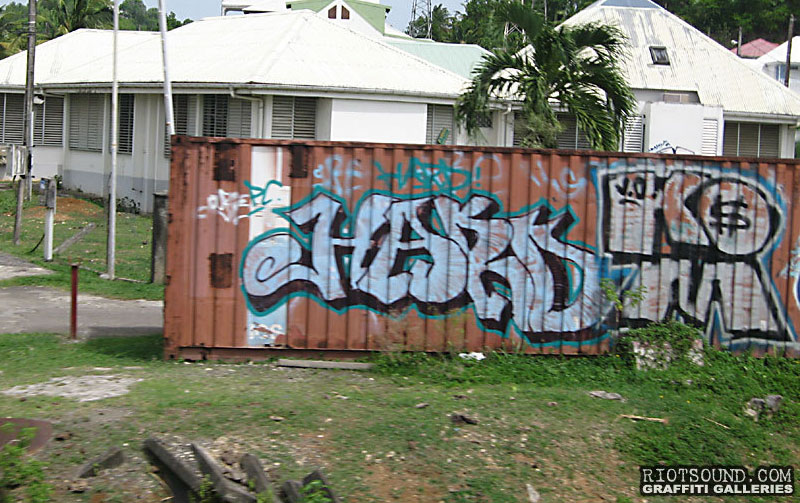
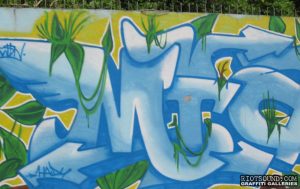
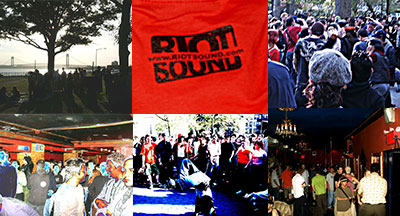













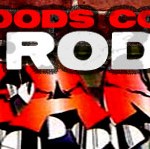

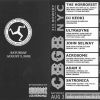
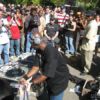


Comments